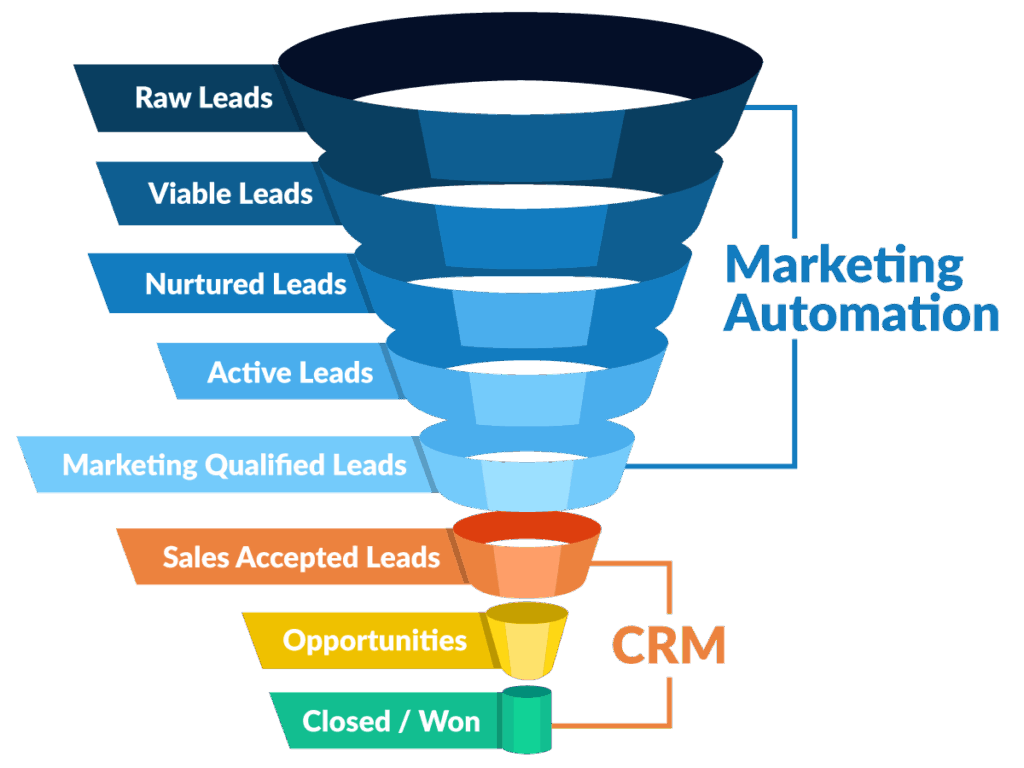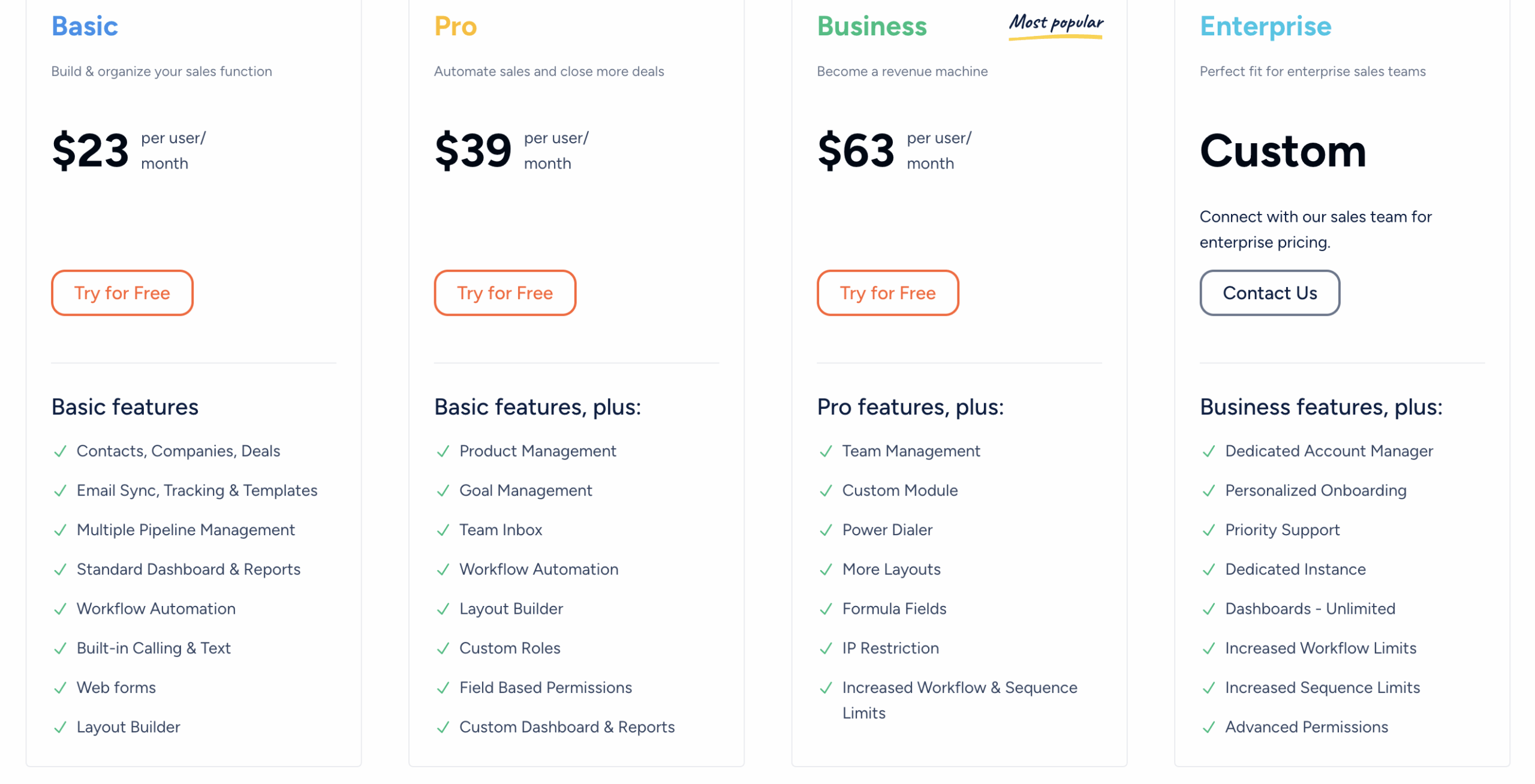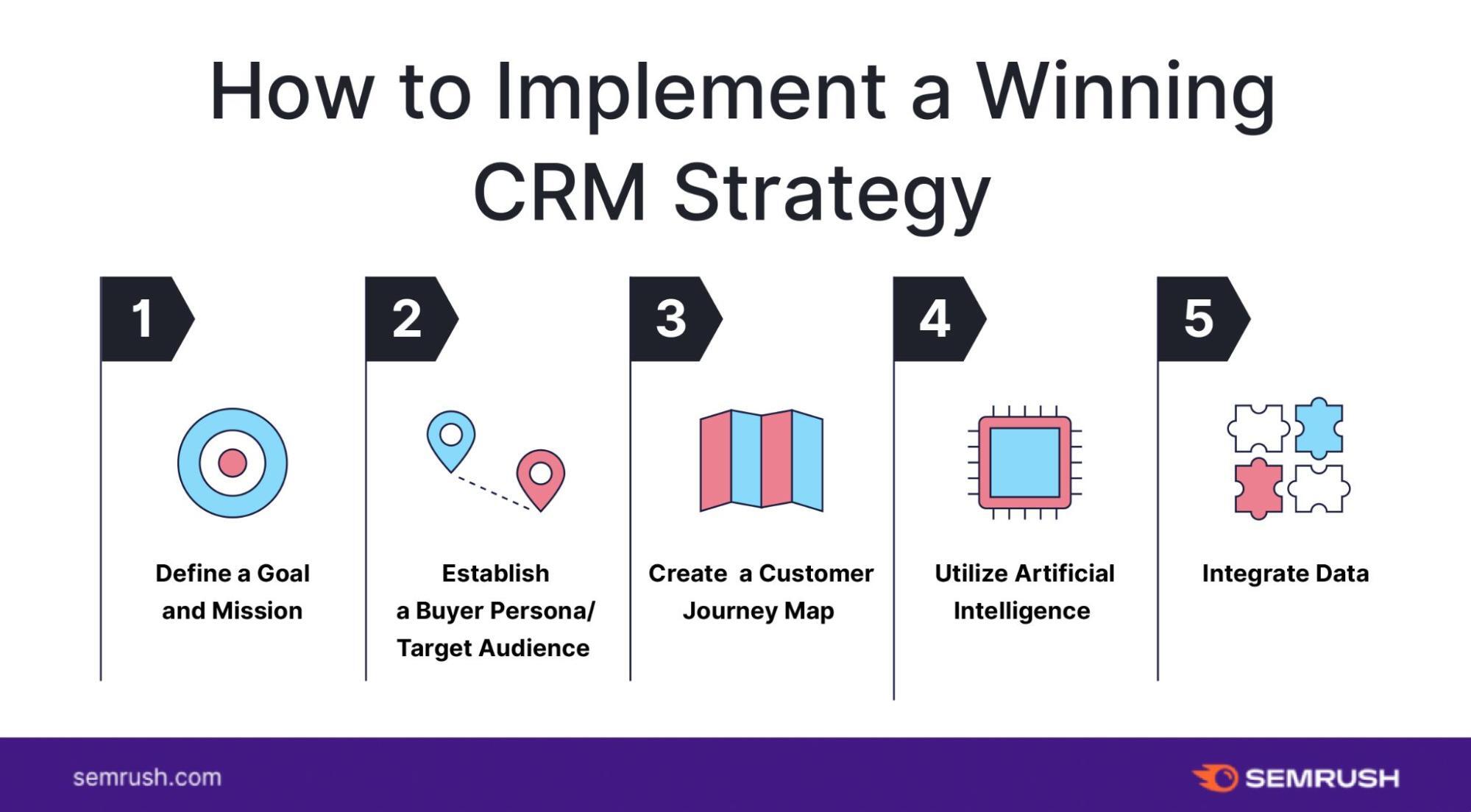CRM Marketing Automation: The Ultimate Guide to Streamlining Your Sales and Boosting Conversions

CRM Marketing Automation: Your Comprehensive Guide to Success
In today’s fast-paced digital landscape, businesses are constantly seeking ways to optimize their operations, enhance customer engagement, and drive revenue growth. One of the most powerful tools available to achieve these goals is the combination of Customer Relationship Management (CRM) and marketing automation. This dynamic duo allows businesses to streamline their sales and marketing efforts, personalize customer experiences, and ultimately, boost their bottom line. This comprehensive guide delves into the world of CRM marketing automation, exploring its benefits, functionalities, implementation strategies, and best practices. Whether you’re a seasoned marketer or a business owner just starting to explore the possibilities, this guide will equip you with the knowledge and insights you need to leverage the power of CRM marketing automation.
Understanding the Fundamentals: CRM and Marketing Automation Defined
What is CRM?
Customer Relationship Management (CRM) is a technology that helps businesses manage and analyze customer interactions and data throughout the customer lifecycle. At its core, CRM systems are designed to improve business relationships with customers, retain customers, and drive sales growth. CRM systems typically centralize customer data, including contact information, purchase history, communication logs, and more. This centralized view provides a 360-degree understanding of each customer, enabling businesses to personalize interactions and tailor their marketing efforts.
Key features of a CRM system include:
- Contact Management: Storing and organizing customer contact information.
- Lead Management: Tracking and nurturing potential customers through the sales pipeline.
- Sales Automation: Automating sales tasks such as lead scoring, opportunity management, and quote generation.
- Marketing Automation: Integrating with marketing tools to automate email campaigns, social media posting, and other marketing activities.
- Reporting and Analytics: Providing insights into sales performance, customer behavior, and marketing effectiveness.
What is Marketing Automation?
Marketing automation refers to the technology and processes that automate repetitive marketing tasks. Its primary goal is to streamline marketing workflows, nurture leads, and improve customer engagement. Marketing automation tools allow businesses to create automated campaigns, personalize customer experiences, and track the performance of their marketing efforts. By automating these tasks, marketers can save time, reduce errors, and focus on more strategic initiatives.
Key functionalities of marketing automation include:
- Email Marketing: Automating email campaigns, including welcome emails, newsletters, and promotional offers.
- Lead Nurturing: Creating automated email sequences to nurture leads through the sales funnel.
- Social Media Automation: Scheduling and automating social media posts.
- Website Personalization: Customizing website content based on visitor behavior and preferences.
- Campaign Tracking and Analytics: Monitoring the performance of marketing campaigns and measuring key metrics.
The Power of Integration: CRM Marketing Automation in Action
The true power of CRM marketing automation lies in its ability to seamlessly integrate CRM and marketing automation tools. This integration allows businesses to leverage the strengths of both systems, creating a unified platform for managing customer relationships and executing marketing campaigns. When CRM and marketing automation are integrated, businesses can:
- Personalize Customer Experiences: Use customer data from the CRM to personalize marketing messages and offers.
- Improve Lead Nurturing: Automate lead nurturing campaigns based on customer behavior and demographics.
- Enhance Sales Efficiency: Automate sales tasks and provide sales teams with valuable insights into customer behavior.
- Optimize Marketing ROI: Track the performance of marketing campaigns and measure their impact on sales.
- Gain a 360-Degree View of the Customer: Combine customer data from the CRM with marketing campaign data to gain a comprehensive understanding of each customer.
For example, imagine a potential customer visits your website and downloads a valuable piece of content. With CRM marketing automation, this action can trigger a series of automated emails designed to nurture the lead, provide additional information, and ultimately, convert them into a paying customer. This automated process saves time, improves efficiency, and ensures that no leads fall through the cracks.
Benefits of CRM Marketing Automation
Implementing CRM marketing automation offers a multitude of benefits for businesses of all sizes. These benefits include:
Increased Efficiency
Automation streamlines repetitive tasks, freeing up valuable time for your sales and marketing teams to focus on more strategic initiatives. This results in improved productivity and a more efficient use of resources.
Improved Lead Generation and Nurturing
Automated lead nurturing campaigns nurture leads through the sales funnel, providing them with relevant information and guiding them towards a purchase decision. This results in a higher conversion rate and a more efficient sales process.
Enhanced Customer Engagement
Personalized marketing messages and offers resonate with customers, leading to increased engagement and loyalty. By tailoring your communication to each customer’s individual needs and preferences, you create a more meaningful and valuable customer experience.
Higher Conversion Rates
By automating the sales and marketing processes, you can improve your conversion rates at every stage of the customer journey, from lead generation to closing deals.
Improved Sales and Marketing Alignment
CRM marketing automation facilitates better communication and collaboration between sales and marketing teams, ensuring that everyone is working towards the same goals and using the same data.
Data-Driven Decision Making
CRM marketing automation provides valuable data and insights into customer behavior and marketing performance, enabling you to make informed decisions and optimize your marketing efforts.
Reduced Costs
Automation can reduce the need for manual labor and administrative tasks, leading to lower operational costs.
Scalability
CRM marketing automation systems are designed to scale with your business, allowing you to easily manage and automate your sales and marketing efforts as your business grows.
Key Features and Functionalities of CRM Marketing Automation Software
Choosing the right CRM marketing automation software is crucial for maximizing its benefits. Here are some key features and functionalities to look for:
- Contact Management: Ability to store and organize customer contact information, including names, email addresses, phone numbers, and social media profiles.
- Lead Management: Tools for tracking and nurturing leads, including lead scoring, lead segmentation, and lead assignment.
- Email Marketing: Features for creating and sending automated email campaigns, including email templates, segmentation, and A/B testing.
- Marketing Automation Workflows: Visual workflow builders for creating automated marketing campaigns based on customer behavior and demographics.
- Landing Page Creation: Tools for creating landing pages to capture leads and promote your products or services.
- Social Media Integration: Ability to connect with social media platforms and automate social media posting.
- Reporting and Analytics: Tools for tracking the performance of marketing campaigns and measuring key metrics, such as open rates, click-through rates, and conversion rates.
- Segmentation: The ability to segment your audience based on various criteria, such as demographics, behavior, and purchase history.
- Personalization: Features for personalizing marketing messages and offers based on customer data.
- Integration with Other Tools: Integration with other business tools, such as e-commerce platforms, customer service software, and accounting systems.
Implementing CRM Marketing Automation: A Step-by-Step Guide
Implementing CRM marketing automation requires careful planning and execution. Here’s a step-by-step guide to help you get started:
1. Define Your Goals and Objectives
Before you start implementing CRM marketing automation, it’s essential to define your goals and objectives. What do you hope to achieve with CRM marketing automation? Are you looking to increase sales, improve customer engagement, or streamline your marketing efforts? Clearly defined goals will help you choose the right software, design effective campaigns, and measure your success.
2. Choose the Right CRM Marketing Automation Software
Selecting the right software is critical for your success. Research different CRM marketing automation platforms and compare their features, pricing, and ease of use. Consider your business needs, budget, and technical expertise when making your decision. Some popular CRM marketing automation platforms include:
- HubSpot: A comprehensive platform with a wide range of features for sales, marketing, and customer service.
- Salesforce: A powerful CRM platform with robust marketing automation capabilities.
- Marketo: A marketing automation platform designed for B2B businesses.
- ActiveCampaign: A user-friendly platform with a focus on email marketing and automation.
- Zoho CRM: A versatile CRM platform with affordable pricing.
3. Set Up Your CRM and Marketing Automation Systems
Once you’ve chosen your software, you’ll need to set up your CRM and marketing automation systems. This involves importing your customer data, configuring your settings, and integrating the two systems. Ensure that your data is clean and accurate to avoid any issues with your automated campaigns.
4. Segment Your Audience
Segmentation is key to personalizing your marketing messages and offers. Divide your audience into different segments based on demographics, behavior, and purchase history. This will allow you to create targeted campaigns that resonate with each segment.
5. Create Automated Workflows
Design automated workflows to nurture leads, onboard new customers, and engage existing customers. These workflows should be triggered by specific customer actions, such as website visits, form submissions, or purchase history. Consider using a workflow builder to visualize and manage your automated campaigns.
6. Design Engaging Email Campaigns
Craft compelling email campaigns that provide value to your customers and guide them through the sales funnel. Use attractive email templates, personalize your messages, and include clear calls to action. Test different subject lines, content, and calls to action to optimize your email campaigns.
7. Integrate Social Media
Integrate your CRM and marketing automation platforms with your social media accounts to automate social media posting and track social media engagement. Schedule posts in advance, and monitor your social media performance to identify what resonates with your audience.
8. Track and Analyze Your Results
Regularly monitor the performance of your CRM marketing automation campaigns and measure key metrics, such as open rates, click-through rates, conversion rates, and ROI. Use these insights to identify areas for improvement and optimize your campaigns.
9. Continuously Optimize and Refine
CRM marketing automation is an ongoing process. Continuously test, analyze, and refine your campaigns to ensure that they are performing at their best. Stay up-to-date with the latest trends and best practices in CRM marketing automation to stay ahead of the competition.
Best Practices for CRM Marketing Automation
To maximize the effectiveness of your CRM marketing automation efforts, consider these best practices:
- Start with a Clear Strategy: Define your goals, target audience, and key performance indicators (KPIs) before you start implementing your campaigns.
- Focus on Personalization: Tailor your marketing messages and offers to each customer’s individual needs and preferences.
- Segment Your Audience: Divide your audience into different segments to create targeted campaigns.
- Automate Repetitive Tasks: Automate tasks such as email marketing, lead nurturing, and social media posting to save time and improve efficiency.
- Use High-Quality Content: Create valuable and engaging content that resonates with your audience.
- A/B Test Your Campaigns: Test different subject lines, content, and calls to action to optimize your campaigns.
- Monitor Your Results: Regularly monitor the performance of your campaigns and measure key metrics.
- Stay Compliant with Data Privacy Regulations: Ensure that your CRM marketing automation practices comply with data privacy regulations, such as GDPR and CCPA.
- Provide Value: Always offer value to your customers, whether it’s through helpful content, exclusive offers, or excellent customer service.
- Keep it Simple: Don’t overcomplicate your campaigns. Start with a few simple automated workflows and gradually add more as you gain experience.
Common Mistakes to Avoid
While CRM marketing automation can be a powerful tool, it’s important to avoid common mistakes that can hinder your success:
- Not Defining Clear Goals: Without clear goals, it’s difficult to measure the effectiveness of your campaigns.
- Poor Data Quality: Inaccurate or incomplete data can lead to ineffective campaigns and a poor customer experience.
- Over-Automation: Don’t automate every aspect of your marketing. Focus on automating tasks that are repetitive and time-consuming.
- Ignoring Customer Preferences: Always respect your customers’ preferences and avoid sending them irrelevant or unwanted messages.
- Not Personalizing Your Campaigns: Generic marketing messages are less likely to resonate with customers. Personalize your messages to each customer’s individual needs and preferences.
- Not Tracking Your Results: Without tracking your results, you won’t know what’s working and what’s not.
- Failing to Test Your Campaigns: Testing different subject lines, content, and calls to action can significantly improve your campaign performance.
- Neglecting Data Privacy Regulations: Failing to comply with data privacy regulations can lead to legal issues and damage your reputation.
- Lack of Integration: Failing to integrate your CRM and marketing automation systems can limit the effectiveness of your campaigns.
- Not Providing Value: Always provide value to your customers to build trust and loyalty.
The Future of CRM Marketing Automation
The field of CRM marketing automation is constantly evolving, with new technologies and trends emerging. Some of the key trends to watch include:
- Artificial Intelligence (AI): AI-powered CRM marketing automation tools can automate more complex tasks, such as lead scoring, content personalization, and customer service.
- Personalization at Scale: Businesses are using advanced segmentation and personalization techniques to create highly targeted marketing messages.
- Omnichannel Marketing: Businesses are integrating their CRM marketing automation platforms with multiple channels, such as email, social media, SMS, and live chat.
- Focus on Customer Experience: Businesses are prioritizing the customer experience and using CRM marketing automation to create more personalized and engaging interactions.
- Data Privacy and Security: Businesses are taking data privacy and security more seriously, implementing robust security measures and complying with data privacy regulations.
Conclusion: Embracing the Power of CRM Marketing Automation
CRM marketing automation is a powerful tool that can transform your sales and marketing efforts, enhance customer engagement, and drive revenue growth. By understanding the fundamentals, implementing best practices, and staying up-to-date with the latest trends, you can leverage the power of CRM marketing automation to achieve your business goals. Embrace the future of marketing and unlock the full potential of your customer relationships.




